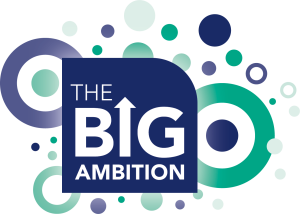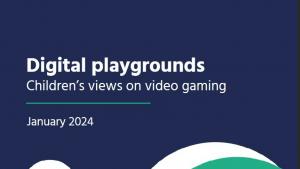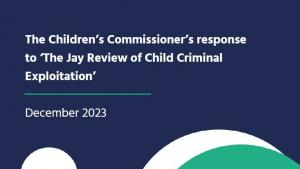Foreword by Children’s Commissioner for England, Dame Rachel de Souza
When I stepped into my new role as Children’s Commissioner on 1st March 2021, I already knew there was a serious issue around sexual harassment and abuse in schools. Over 30 years as an educator, working directly with children in schools across the country, had shown me this plainly.
However, I don’t think any of us – parents, teachers, policymakers – had fully grasped the scale of the crisis. When Everyone’s Invited exploded after the horrific rape and murder of Sarah Everard, we were overwhelmed by the tens of thousands of testimonies detailing harassment, intimidation and sexual violence in schools and colleges. Each story is written by an individual. They show that these issues are not bound by geography or socioeconomics. Peer-on-peer abuse is universal, and to a large extent normalised and brushed under the carpet.
For me, the most troubling revelation is the lack of trust that many victims say they feel in safeguarding processes. Clearly schools and colleges – and by extension Ofsted and the Department for Education – have a significant role to play here in sharpening up these processes and restoring victims’ faith in safeguarding. I sat on the 2021 Ofsted Review into sexual harassment in schools and recommended just this.
However, this is not simply a “school” or “college” issue, it is a societal one. Children can be exposed to street harassment by adults, not just in school from their peers. Moreover, harmful sexual behaviours are increasingly being shaped by the content and cultures that children are exposed to online, including pornography, misogynistic trolling and the non-consensual sharing of intimate images. It is important to remember that child perpetrators are also victims in this regard.
Tackling online sexual abuse and harassment among young people quickly became a key priority for me and my Office. I was delighted to be asked by the Secretary of State for Digital, Culture, Media and Sport and the Secretary of State for Education to look at the issue of internet pornography and other inappropriate and harmful content online, and how this is fuelling the sexual violence crisis we are seeing in schools. I was asked to look at what more can be done now, ahead of the Online Safety Bill reaching assent and implementation, to protect young people online.
I was glad that the Secretaries of State also asked for my assistance in bringing children’s voices to the heart of the debate around the Online Safety Bill. Children are born into a world of 24-hour digital connection, yet it is a world that they did not create. It is also a world which, far too often, does not have their best interests and safety at heart. It is crucial that we listen to children as this landmark Bill passes through Parliament.
This document is a summary of 9 months of work on these issues. My team have consulted with children, young adults and parents, and with regulators in this country and around the world. I have also convened roundtables of the adult and social networking industries, alongside both Secretaries of State.
Children told us that adults need to step up to the plate. It is no longer acceptable for them to say that they ‘don’t understand’ what’s going on in their digital lives. I worked with children and young people to produce our fantastic guide for parents on sexual harassment and abuse: “The things I wish my parents had known” based on young people’s own experiences and insights about online harassment.
Up until now, we have been several steps behind when it comes to making the online world a safe place to grow up. Yet I believe that there is cause for optimism. The Online Safety Bill can be a landmark piece of legislation which will reset the contract between tech firms and their youngest users. Furthermore, there are several areas where the Government and the tech industry, as well as teachers and parents, can make more immediate change. I outline these in the final recommendation section of this report.
Now I have identified the issues, I will continue to champion this cause. I am excited to work with Government and the tech industry, and with children, teachers and parents to create a safer internet for all users. I truly believe that with good collaboration, this can be a reality, and soon.
My thanks
I would like to express my heartfelt thanks to the many children and young people with whom we consulted over the course of this work. Thank you for your honesty and bravery in talking about these difficult issues. Across focus groups, workshops and in response to The Big Ask you told us clearly why this is an issue and how things need to change. We could not have completed this work without you.
I would also like to thank the Department for Digital, Culture, Media and Sport and the Department for Education for their trust in commissioning this important programme of work, and for their continued support with it.
Finally, I would like to thank the members of my expert charity steering group – Action for Children, Barnardo’s, Childnet, Internet Matters, IWF, NSPCC, ParentZone and the PSHE Association – who offered great advice and insight for my parents’ guide to online harassment. Their fantastic research and resources influenced this “final findings” report too.





